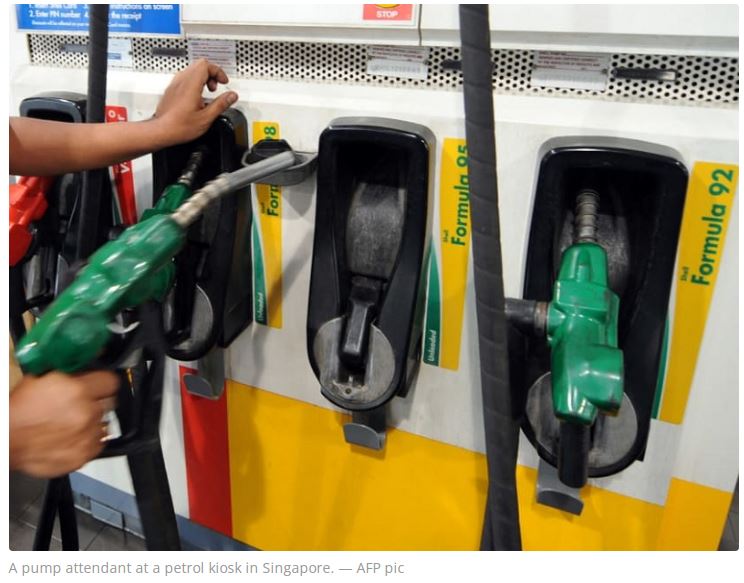Ukraine-Russia conflict will ‘significantly’ affect energy costs in Singapore, says minister
SINGAPORE, March 1 — Energy costs will be one key area where the conflict in Ukraine will affect Singapore, with pump prices for petrol and diesel here expected to rise, along with electricity rates for both businesses and households.
Gan Kim Yong, Minister for Trade and Industry, touched on Russia’s invasion of Ukraine while speaking during the Budget debate in Parliament yesterday.
He said that while the immediate and direct impact on Singapore’s economy and firms has been “manageable” for now, the crisis “has clouded our economic outlook” and downside risks “have also increased significantly”.
“One key area we will be significantly impacted by the conflict in Ukraine is energy cost, as we import most of our energy needs.”
He noted that the conflict is still evolving, and the situation could change quickly.
“Make no mistake, that while Ukraine may seem far away from Singapore, the conflict there will have real and significant impact on all of us,” he said.
“With the sanctions being imposed on Russia by various countries and the disruption to supplies, global prices of energy and other products are set to rise in the coming weeks.”
The prices of liquified natural gas have already doubled since six months ago to about US$35 (RM146.90) per million British Thermal Units now, he pointed out.
The Brent Crude benchmark for oil also surged past US$100 per barrel a few days ago, compared to the US$71 average last year.
These changes will be felt across the board by motorists, businesses and households here, further raising the cost of living.
Foreign Affairs Minister Vivian Balakrishnan announced earlier in Parliament that Singapore will impose sanctions on Russia, including export controls on items that can be used as weapons to inflict harm or subjugate the Ukrainians.
Dr Balakrishnan said that Singapore will also block certain Russian banks and financial transactions connected to Russia.
Besides energy prices, the conflict will also further strain global supply chains, since Russia and Ukraine are major exporters of commodities such as wheat, and metals such as nickel and palladium.
This would raise prices of goods that use these commodities as intermediate input, Gan added. The manufacturing and construction sectors, as well as semiconductor industry and the wider technology goods market are areas that may be affected by these disruptions.
The Government is working with key companies to review their business continuity plans to minimise disruptions, but Singapore must also brace for the follow-on impact on trade and investment flows.
“A protracted conflict will affect business confidence and weigh on global economies, and impact their recovery from the pandemic,” Gan said.
“The Ukraine crisis has clouded our economic outlook,” he added, noting that the actual impact on Singapore’s gross domestic product (GDP) growth and inflation is “difficult to estimate” given the uncertainties at this stage.
“A lot will depend on how the conflict unfolds, the global response to the situation, and the longer-term impact on the global economy,” he said.
“However, what is clear is that inflationary pressures are likely to rise further in the near term, especially through an increase in the prices of oil-related items in the first instance. The downside risks to our economy have also increased significantly.”
The Ministry of Trade and Industry and Monetary Authority of Singapore earlier projected GDP to grow by 3 to 5 per cent this year, with headline inflation coming in at between 2.5 per cent and 3.5 per cent, and core inflation to average between 2 and 3 per cent.
Gan assured Parliament that the Government has adopted a multi-pronged strategy to manage supply-chain risks and the strategy has been enhanced since the Covid-19 pandemic, particularly for essential goods.
The strategies included diversification of imports, stockpiling, producing goods domestically where viable and procuring from alternative sources where necessary.
Rounding up his speech, Gan emphasised how the Ukraine conflict is a reminder that a small and open economy such as Singapore is vulnerable to unexpected international changes.
“It is crucial that we strengthen our defences against such external shocks. To do that, we need to build a vibrant, diversified and resilient economy, as well as forge a cohesive and united society.” — TODAY


 Thailand
Thailand




